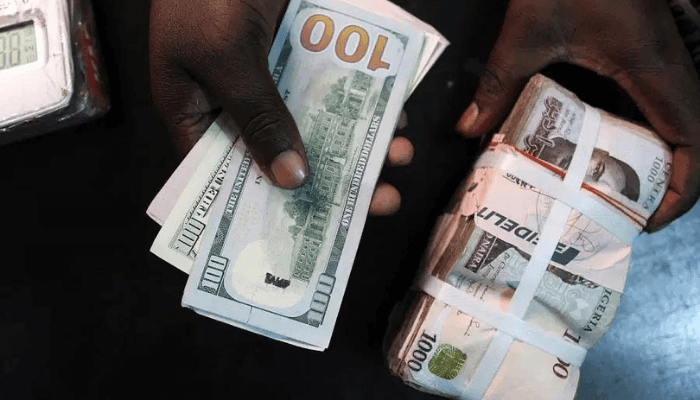The Central Bank of Nigeria (CBN), has announced that it has provided Bureau De Change (BDCs), operators with $10,000 at an exchange rate of ₦1,251 per United States, US, dollar in a fresh move to stabilize the foreign exchange market.
This was made public in a circular signed by Hassan Mahmud, the CBN Director of Trade and Exchange Department which was obtained by Africa Today News, New York on Tuesday morning.
In the circular, the apex bank ordered the BDCs to offer dollars to qualified customers at a rate not more than 1.5 per cent above the buying price.
This indicates that BDCs are advised not to sell above N1,269 for each $1.
The circular reads partly: “We refer to our letter to you referenced TED/DIR/CON/GOM/001/071 in respect of the above subject wherein the CB approved a second tranche of sale of FX to eligible BDCs.
Read Also: FX Backlog: Show Evidence Of Payment, Foreign Airlines To CBN
“We write to inform you of the sale of $10,000 to each BDC at the rate of N1,251/$1. The BDCs are to sell to eligible end users at a spread of NOT MORE THAN 1.5 per cent above the purchase price.”
In another report, against the backdrop of viral reports that the CBN, has cleared all valid foreign exchange backlogs, foreign airlines operating in the country have raised questions about the claim.
The President of Association of Foreign Airlines and Representatives in Nigeria (AFARN), Mr Kingsley Nwokeoma, while speaking to newsmen on Friday called for evidence of payment from the apex Bank.
Nwokeoma said: “If they’ve paid, they should let us know how much has been paid. Where is the evidence of payment? They should show us evidence of payments and we will thank them because payment is what we want. The backlog of trapped funds made foreign airlines stop releasing low inventory tickets.”
Nwokeoma also said although foreign airlines have been told to get their funds from the banks using the rate of the I & E window, they refused because the current I & E window rate differed from what they used in selling tickets.

